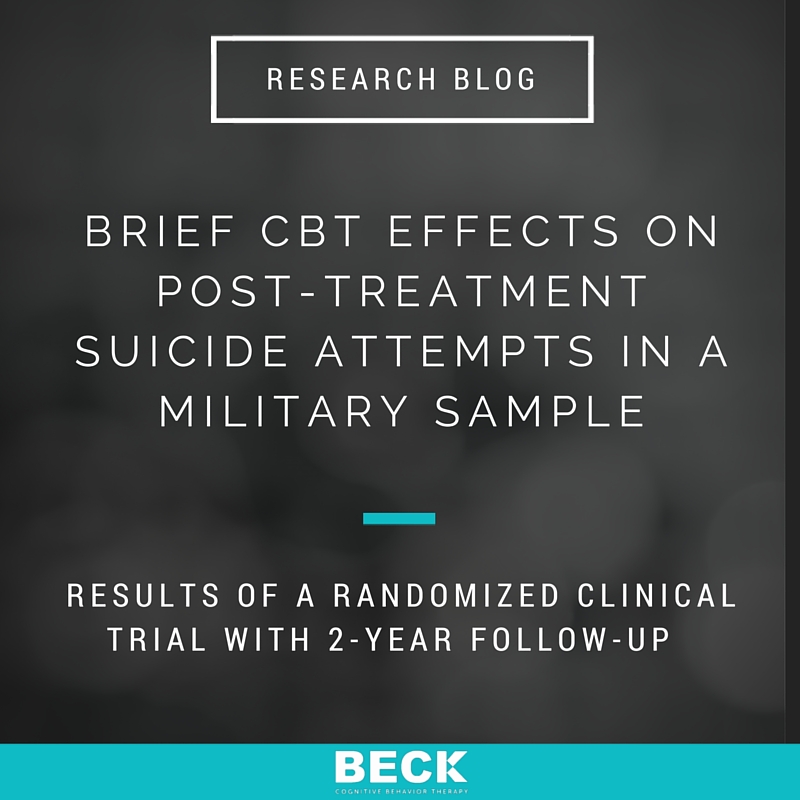Abstract
Objective:
The authors evaluated the effectiveness of brief cognitive-behavioral therapy (CBT) for the prevention of suicide attempts in military personnel.
Method:
In a randomized controlled trial, active-duty Army soldiers at Fort Carson, Colo., who either attempted suicide or experienced suicidal ideation with intent, were randomly assigned to treatment as usual (N=76) or treatment as usual plus brief CBT (N=76). Assessment of incidence of suicide attempts during the follow-up period was conducted with the Suicide Attempt Self-Injury Interview. Inclusion criteria were the presence of suicidal ideation with intent to die during the past week and/or a suicide attempt within the past month. Soldiers were excluded if they had a medical or psychiatric condition that would prevent informed consent or participation in outpatient treatment, such as active psychosis or mania. To determine treatment efficacy with regard to incidence and time to suicide attempt, survival curve analyses were conducted. Differences in psychiatric symptoms were evaluated using longitudinal random-effects models.

Results:
From baseline to the 24-month follow-up assessment, eight participants in brief CBT (13.8%) and 18 participants in treatment as usual (40.2%) made at least one suicide attempt (hazard ratio=0.38, 95% CI=0.16–0.87, number needed to treat=3.88), suggesting that soldiers in brief CBT were approximately 60% less likely to make a suicide attempt during follow-up than soldiers in treatment as usual. There were no between-group differences in severity of psychiatric symptoms.
Conclusions:
Brief CBT was effective in preventing follow-up suicide attempts among active-duty military service members with current suicidal ideation and/or a recent suicide attempt.
Rudd, M. D. (January 01, 2015). Brief Cognitive-Behavioral Therapy Effects on Post-Treatment Suicide Attempts in a Military Sample: Results of a Randomized Clinical Trial With 2-Year Follow-Up. American Journal of Psychiatry, 172, 5, 441-449.